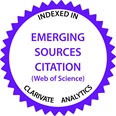Tytuł
Uznanie regulacyjne
Abstract
The Community concept of regulation is based on two premises: the independence of the regulator and the basing of its decisions on a discretionary power determined and limited by reference to the functioning of the relevant market. The regulator has the power to impose decisions on undertakings to compensate for the competitive deficit caused, for example, by the existence of a natural monopoly. However, this power is limited by several factors. Firstly, additional obligations imposed on undertakings should be lifted once competition is restored. Secondly, the regulator should take into account the objectives of the treaty, the principles of regulation and general categories such as 'public interest' and various forms of 'security'. However, the distinctiveness of the construction of the legal basis for this form of administrative intervention lies in the fact that the authority should precede the issuance of the decision with a market analysis, which is both a source and a limitation of the discretionary power. This analysis is to some extent conditioned by law, Commission decisions, the position of the antitrust authorities and the results of consultations. However, much of it is determined by methods typical of economics. An additional element that reinforces discretion in regulatory decision-making is the analysis of the state of competition ex ante, i.e. also taking into account future market developments. Such a model for the application of law can be considered unacceptable in most other branches of law. Although there is a difference between regulatory law and competition law expressed in the fact that the latter in principle assesses and influences the market ex post rather than ex ante, regulatory discretion in the broad sense can be attributed to either branch.
Abstrakt
Wspólnotowa koncepcja regulacji opiera się na dwóch przesłankach: niezależności organu regulacyjnego oraz oparciu jego decyzji na władzy dyskrecjonalnej zdeterminowanej i ograniczonej przez odwołanie do kategorii funkcjonowania rynku właściwego. Organ regulacyjny posiada władzę nakładania na przedsiębiorstwa decyzji wyrównujących niedostatek konkurencji spowodowany np. występowaniem monopolu naturalnego. Władza ta jest jednak ograniczona przez kilka czynników. Po pierwsze, dodatkowe zobowiązania nakładane na przedsiębiorstwa powinny być zniesione z chwilą przywrócenia prawidłowego funkcjonowania konkurencji. Po drugie, organ regulacyjny powinien wziąć pod uwagę cele traktatu, zasady regulacji oraz generalne kategorie, takie jak "interes publiczny" oraz różne formy "bezpieczeństwa". Odrębność konstrukcji podstawy prawnej tej postaci interwencji administracyjnej leży jednak w tym, że organ powinien poprzedzić wydanie decyzji analizą rynku, stanowiącą jednocześnie źródło i ograniczenie władzy dyskrecjonalnej. Analiza ta jest do pewnego stopnia uwarunkowana prawem, decyzjami Komisji, stanowiskiem organów antymonopolowych i wynikami konsultacji. Jednak znaczna jej część jest uwarunkowana metodami typowymi dla ekonomii. Dodatkowym elementem wzmacniającym uznaniowość w podejmowaniu decyzji regulacyjnych jest analizowanie stanu konkurencji ex ante, tj. z uwzględnieniem także przyszłego rozwoju sytuacji na rynku. Taki model stosowania prawa można uznać za niedopuszczalny w większości innych jego gałęzi. Mimo że istnieje różnica pomiędzy prawem regulacji a prawem konkurencji wyrażająca się w tym, że to ostatnie co do zasady ocenia rynek i wpływa na niego ex post raczej niż ex ante, to jednak szeroko rozumiane uznanie regulacyjne można przypisać każdej z tych dziedzin.
Recommended Citation
Hoff, W. (2008). Regulatory Discretion. Problemy Zarządzania, 6(19), 73-92. Retrieved from https://press.wz.uw.edu.pl/ems/vol6/iss19/4
First Page
73
Last Page
92
Page Count
19
Publisher
University of Warsaw







